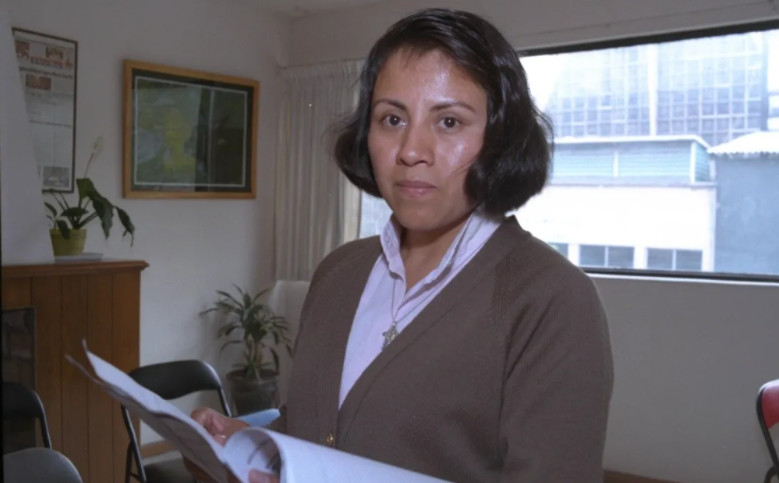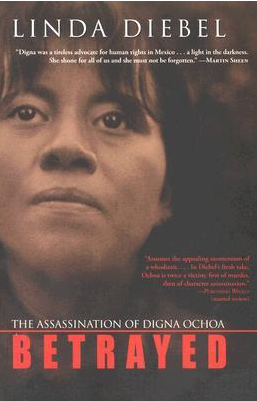
Lawyer Digna Ochoa was murdered on October 19, 2001. She worked at the Human Rights Center “Miguel Agustín Pro Juárez” (Centro Prodh).
In its 2001 annual review, Peace Brigades International noted: “The situation of human rights defenders [in Mexico] worsened significantly after the 19 October assassination of internationally known human rights defender Digna Ochoa and death threats against other human rights defenders.”
That PBI report further noted: “One of the cases that Digna Ochoa had been working on implicated the army in human rights abuses against environmental activists campaigning against logging in Guerrero.”
Ochoa is also mentioned in the PBI publication Dignas – Voices of Women.
In it, Emiliana Cerezo Contreras says: “In 2001 my brothers were accused of putting bombs in several offices of the National Bank of Mexico, Banamex. Through some friends, my brother Alejandro got in contact with Pilar Noriega and Digna Ochoa, two lawyers who took on their cases. That is how the Cerezo Committee was created.”
Democracy Now! has also reported: “Ochoa worked on behalf of peasant ecologists in the state of Guerrero, Zapatista guerrillas in Chiapas and indigenous peoples in her home state of Veracruz. At the time of her death, she was defending three men charged with bombing banks in Mexico City to protest against globalization.”
IACHR ruling
Now, La Jornada reports: “The Inter-American Court of Human Rights [IACHR] found Mexico responsible for serious failures in the investigation into the death of human rights defender Digna Ochoa on 19 October 2001.”
That article adds: “Therefore, it ordered the Mexican state to reopen the investigations of the case in pertinent terms; investigate and eventually prosecute those possibly responsible for his death; carry out a public act of international responsibility and create a recognition in the defense of human rights that will bear the name ‘Digna Ochoa y Plácido’.”
Reuters also reports: “The Mexican government committed serious errors in the investigation of the death of the activist Digna Ochoa two decades ago and must continue with the probe, the Inter-American Court of Human Rights (IACHR) said on Wednesday [January 19].”
“Ochoa, who received death threats before her body was found with gunshot wounds in October 2001, was a lawyer who defended cases of human rights violations allegedly committed by civilian and military security forces.”
“Investigations into what became one of the country’s most high-profile cases initially pointed to a murder, but prosecutors later directed the investigation to a possible suicide. The case was considered closed.”
That article concludes: “Mexico must therefore continue to investigate and eventually prosecute those possibly responsible for her death, the court said, and take responsibility.”
This follows the admission by the Mexican State to the IACHR in April 2021 that it is partially responsible for the murder of Ochoa.
At that time, AL DÍA reported: “During the second hearing of the trial before the IACHR, the Foreign Ministry announced it will propose to the family to reopen the investigation after two decades to confirm that it was a homicide.”
The Peace Brigades International-Mexico Project began accompanying the Cerezo Committee in 2002 and has had a longstanding strategic alliance with the Miguel Agustín Pro Juarez Human Rights Center — Centro ProDH.
Toronto Star reporter Linda Diebel knew her and wrote the book “Betrayed: The Assassination of Digna Ochoa” that was published in 2005.

